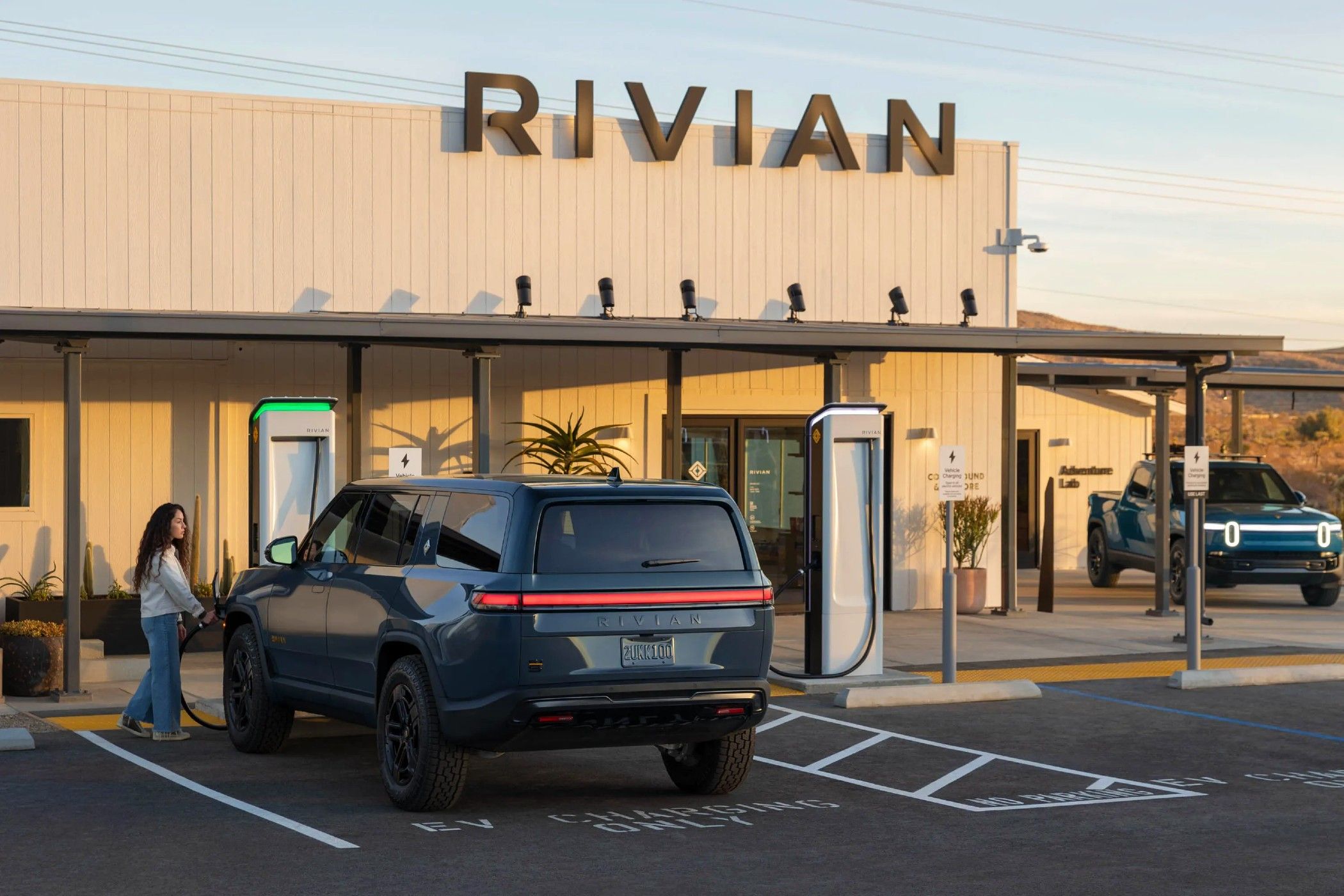Rivian is opening up its network of EV chargers. This makes the chargers available for non-Rivian vehicles for the first time.
Rivian’s first intercompatible charging station is located in Joshua Tree National Park, California, and it can be used by all compatible electric vehicles in North America. This is a big change from Rivian’s earlier approach, similar to Tesla, which used to only allow its own customers to use their chargers. This new direction is partly due to federal requirements for getting funding for EV charging stations, which state that the chargers must be accessible to all electric vehicle brands.
This makes a lot of sense when you look at it objectively. It would be really weird if only GM vehicles could use certain gas stations. It just leads to problems and doesn’t support the business as a whole. Luckily, things are moving in a positive direction, with GM and EVgo recently passing 2,000 public stations accessible to most EVs in the US.
Before this announcement, Rivian had 560 chargers at 92 locations only available to R1T and R1S owners. Now, the new charging stations have a better interface, featuring bigger screens and a tap-to-pay option, so users won’t need the Rivian app anymore. The chargers use the CCS connector for fast charging, but previously, they could only be used by Rivian vehicles due to special software. That software is being removed, making the chargers accessible to more people. Additionally, Rivian plans to build more charging stations in Texas, Colorado, Illinois, Montana, Pennsylvania, Michigan, and New York, all of which will be available to all electric vehicles by the end of 2024.
Rivian is updating its Adventure Network charging stations so they can be used by cars that aren’t made by Rivian. These updates will include new connectors that work with Tesla vehicles when paired with an adapter. Rivian has decided to support the NACS (North American Charging Standard), providing adapters for its current customers to use Tesla’s Supercharger stations.
Rivian also plans to include NACS ports in its vehicles by 2026. The Joshua Tree charging station, along with others that are being updated, will be available for Tesla owners who have NACS-to-CCS adapters. This follows a trend, as even Kia and Honda owners have been trying to make their vehicles more compatible with the (de facto) NACS standard.





